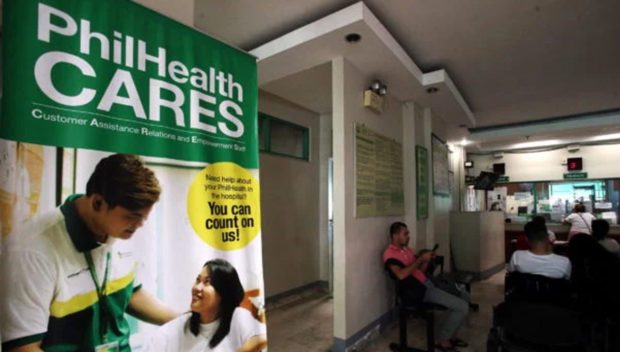PhilHealth tightens rules on claims to stop further losses

FILE PHOTO
Following billions of pesos in losses due to fraud and overpayments, the state health insurer on Friday announced updated guidelines to be followed by hospitals and other health-care providers (HCP) to prevent any further wastage of its funds through irregular claims.
The Philippine Health Insurance Corp. (PhilHealth) Circular 2021-0013 includes “additional provisions” to strengthen its 2016 policy on the imposition of any temporary suspension of payment of claims (TSPC) and also to ensure due process is observed before such action is taken “to allay fears of alleged arbitrary investigations.”
The move came almost a year after the agency was probed for P153.7 billion in losses from 2013 to 2018, which was first reported by the Inquirer in June 2019, due to overpayments and fraud that stemmed from irregularities in the implementation of the all-case rate system.
Investigators also found P14.97 billion in “excessive” COVID-19 disbursements to hospitals under its internal reimbursement mechanism.
Fraud control
In a statement, PhilHealth spokesperson Shirley Domingo said the TSPC five-year-old policy was updated with the circular which was “issued in the spirit of proper fund management and fraud control.”
“Fraud control is a basic tenet in managing funds. Hence, PhilHealth finds it imperative to implement measures to ascertain the security and sustainability of funds entrusted to it,” she said.
Domingo said the guidelines were meant for health-care providers “engaged in fraudulent acts against the funds entrusted to the corporation by its members. PhilHealth assures its members and accredited providers that all good claims shall not be affected by this policy.”
In a statement on Aug. 5, PhilHealth said it was still processing some P25.6 billion worth of claims, or about 12 percent of the total claims it received from government and private hospitals since 2020 up to June 31 this year.
It said that it received almost 18 million claims during the period and paid 76.4 percent, or P166 billion worth of claims. It added that 8 percent of the claims were returned to hospitals for compliance with identified deficiencies while 3 percent were denied due to noncompliance and various violations of existing rules and regulations.
Conditional stoppage
According to the new circular, a TSPC order is the conditional stoppage of payment of claims which are undergoing investigation and is a “preventive measure” against the loss or waste of funds “due to fraudulent acts, unethical acts and abuse of authority.”
Prior to such an order, PhilHealth will issue a notice of findings to the concerned health-care provider which has claims that are under investigation.
If the hospital or medical facility fails to answer within three days or its explanations lack merit, investigators may recommend a notice of TSPC. Previously, the concerned health-care provider was given 10 days to reply.
If the PhilHealth president and chief executive order takes no action within 30, the suspension of payment is deemed approved.
The TSPC will cover all affected or identified PhilHealth claims that are not yet paid, refiled, under reconsideration or appeal, and claims that will be submitted to PhilHealth after the issuance of the suspension order.
‘Ghost patients’
The TSPC should not exceed 120 calendar days and can be extended to allow further investigation to no more than 90 more days.
A TSPC order can cover all claims by a health-care provider that is found to have “treated” a “ghost patient,” or the claims it made for a specific condition or procedure.
But PhilHealth said it would still receive and process claims from health-care providers even if they had been issued a TSPC order.
“However, payment shall be put on hold pending investigation or resolution of cases,” according to the circular.
They would get the payment for their claims that were under investigation after these had been cleared of fraud or irregularities.
The TSPC may be lifted due to expiration of the 120-day period, unless it is extended, or if no evidence was presented regarding the alleged offense committed by the health-care provider. —WITH A REPORT FROM ANA ROA, INQUIRER RESEARCH